A tin of pancake makeup at the Academy Museum tells a story about the Black image in film
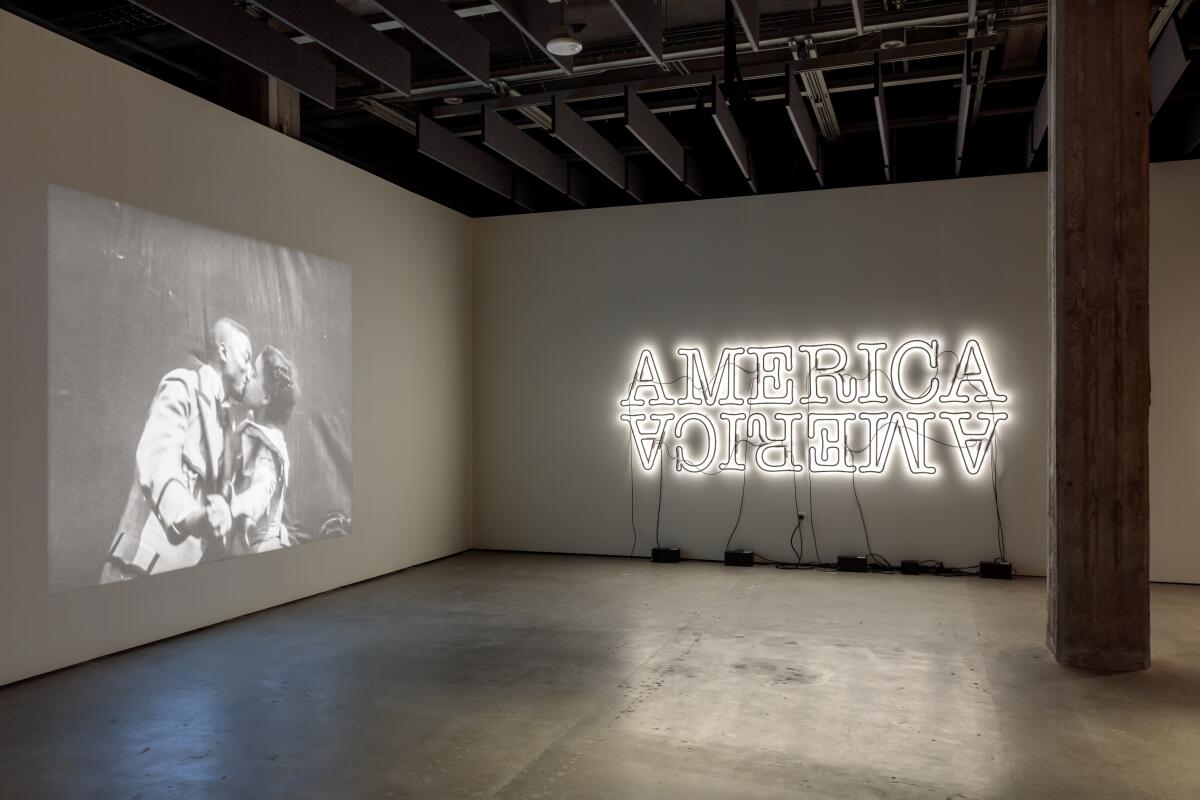
- Share via
It’s been a minute! I’m Carolina A. Miranda, art and design columnist at the Los Angeles Times, and I am baaaaack from book leave — which was devoted to writing a monograph exploring the life and work of Nuyorican painter Juan Sánchez (who was recently the subject of a solo show at New York’s Hutchinson Modern & Contemporary, in case you’re wondering).
I’ve been marinating in all things Puerto Rico for six weeks and I’ve got recommends! For starters, download Alana Casanova-Burgess’ remarkable podcast, “La Brega.” (I devoured the episode devoted to the Puerto Rican Levittown.) Then move on to journalist Ed Morales’ engaging 2019 book, “Fantasy Island: Colonialism, Exploitation, and the Betrayal of Puerto Rico,” which provides a great overview of Puerto Rico’s economic and political crises — and a trenchant critique of the musical “Hamilton.” And lastly, no recommendations list of mine would be complete without food, so may I present the godly mofongo I ate at José Enrique in San Juan.
Now, back to our regularly scheduled programming: all of the essential culture news ... and the great tortillas of film.
The banality of makeup
Sometimes it’s the small object that sticks like a thorn in your side. That was certainly the case when I paid a recent visit to the Academy Museum to check out “Regeneration: Black Cinema 1898-1971,” co-curated by Doris Berger and Rhea L. Combs.
The first galleries, naturally, tackle the early roots of cinema. This includes breakthroughs — such as a lovely, late 19th century clip that shows actors Gertie Brown and Saint Suttle kissing flirtatiously, an early filmic record of Black intimacy. Also depicted are the realities of racism: photos of movie theaters under de jure segregation (also powerfully evoked by a work of art by Gary Simmons) and a poster for D.W. Griffith’s hateful, Klan-inciting “The Birth of a Nation.” Tucked into a vitrine among these displays is a tin of pancake makeup produced by Max Factor. Its shade? “Black (Minstrel).”
Its awful banality has stuck with me.
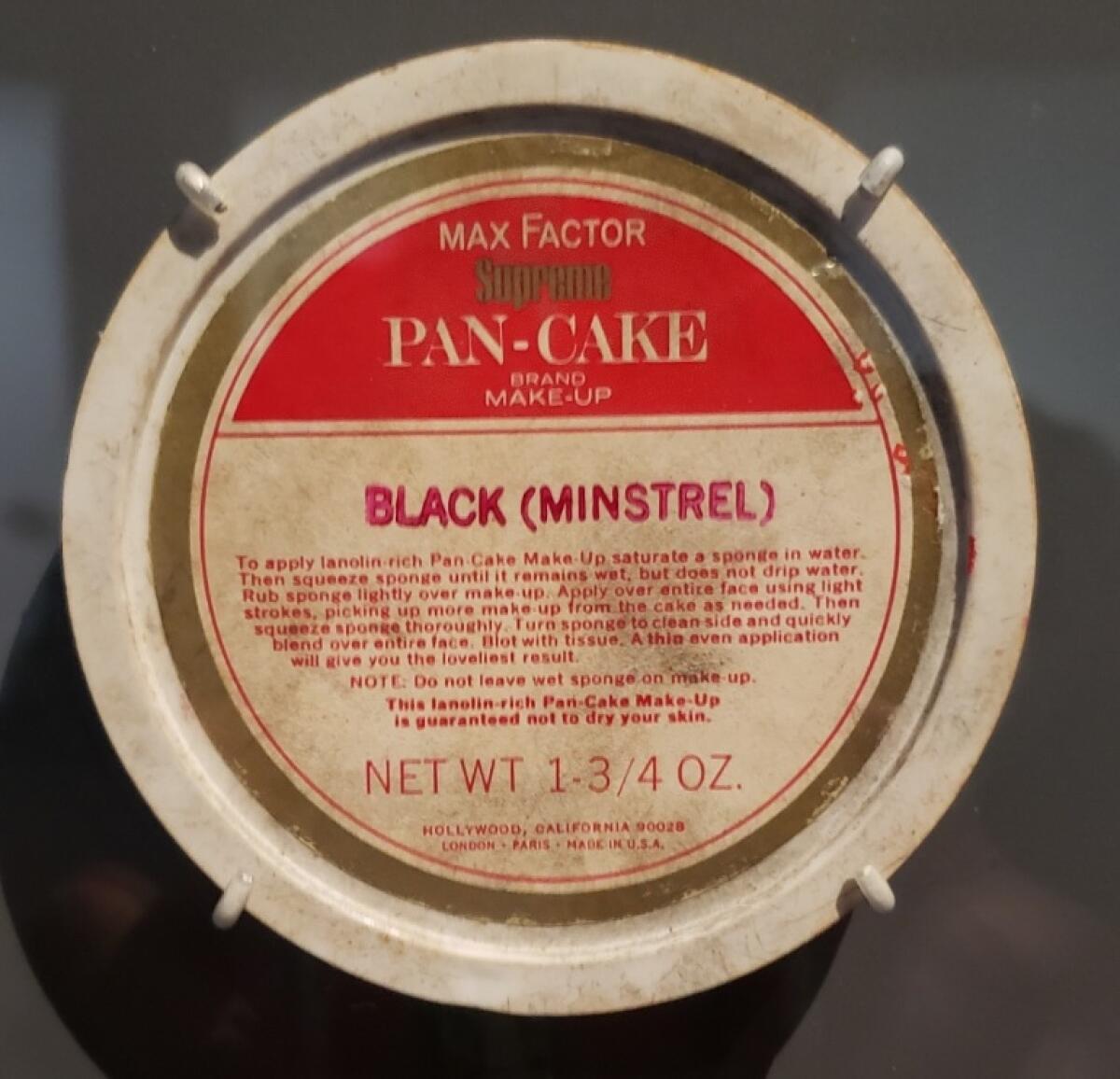
I’ve written about blackface and minstrelsy in the past and talked to experts about its toxic roots. It’s a degradation of the Black experience that early Black performers found themselves mired in, obligated to perform in blackface for white audiences who would not otherwise accept them. The otherwise innocuous tin of makeup contains within it this ghastly history. It goes beyond that too.
“It connects to the roles that Black actors are offered,” Berger tells me. “It’s important to talk about this in terms of the challenges the performers had to face in the Hollywood industry.” (This goes for other groups too: early movie makeup came in plenty of other cringe-inducing shade names, including “Extra Dark Egyptian,” “Chinese” and “Indian.”)
Make the most of L.A.
Get our guide to events and happenings in the SoCal arts scene. In your inbox every Monday and Friday morning.
You may occasionally receive promotional content from the Los Angeles Times.
The pancake makeup is also a veritable object lesson on how Hollywood has depicted Black people versus how they have depicted themselves. In that same gallery is a display devoted to turn-of-the-20th century actor Bert Williams, a dapper Bahamian-born performer who was forced to wear blackface but nonetheless managed to bring humanity and dignity to these fraught roles. (Do not miss the remarkable snippets of a Williams picture titled “Lime Kiln Club Field Day,” a never-completed film, now in MoMA’s collection, that was shot between 1913 and 1914 and featured the all-Black cast mostly without makeup and in sympathetic ways.)
A subsequent gallery features posters and other ephemera connected with early race pictures: films with Black casts, frequently made by Black directors for Black audiences. This included westerns, gangster pictures, love stories and narratives about vaunted entertainers. “Here,” says Berger, “you have a much richer and wider number of roles for actors.”
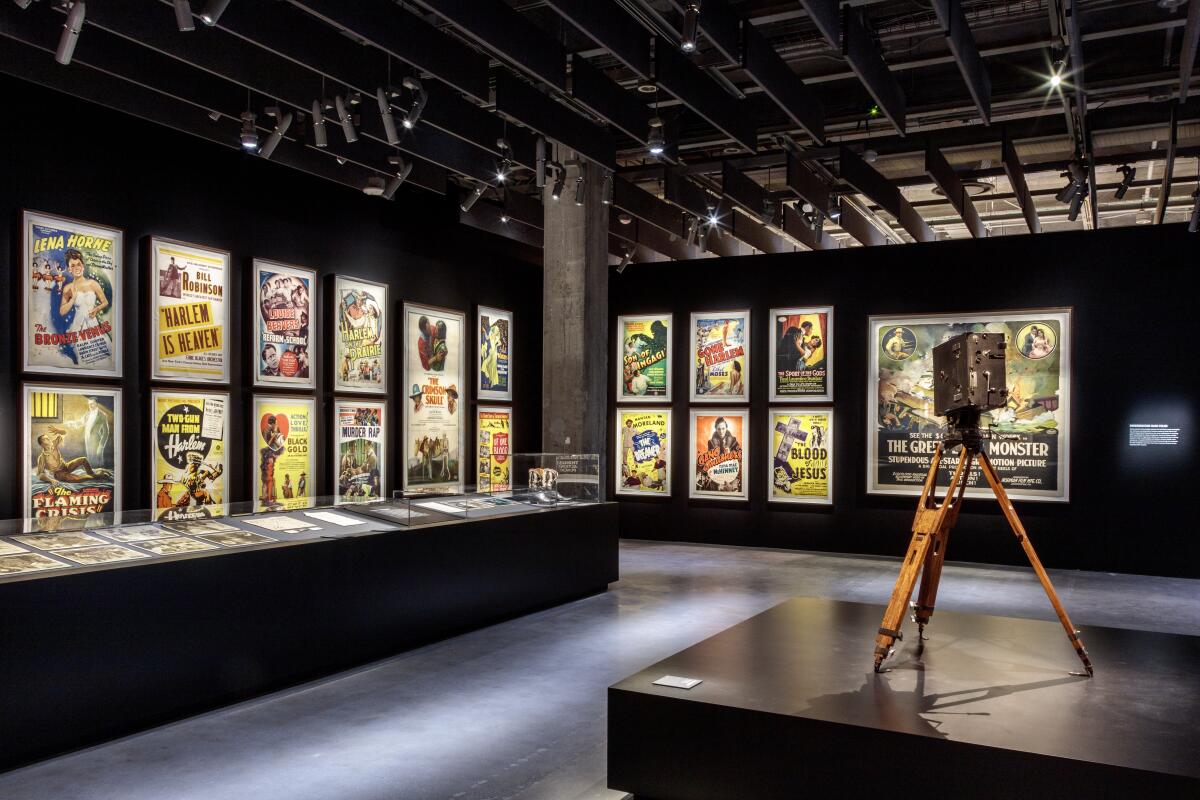
How Hollywood continues to disregard Black experiences is an issue that has not gone away.
Films with Black leads and helmed by Black directors were shut out of the major categories at the Academy Awards this year. As Gina Prince-Bythewood, director of “The Woman King,” wrote in the Hollywood Reporter: “It’s a reflection of where the Academy stands and the consistent chasm between Black excellence and recognition.” How Viola Davis’ turn in “The Woman King,” for example, a performance that I took in with my eyes but felt in the marrow of my middle-aged woman’s body, went unrecognized, is evidence of a stark racial (and gender) perception gap.
This is a gap whose roots are on stark display in the galleries of the Academy Museum. Perhaps it’s time for Oscars voters to visit their own museum.
“Regeneration: Black Cinema 1898-1971” is on view at the Academy Museum of Motion Pictures through July 16; academymuseum.org. And you can find The Times’ Oscars coverage at this link.
And the 2023 Pritzker Prize goes to ...
David Chipperfield. In its citation, the Pritzker jury hailed buildings that “each time exude clarity, surprise, sophisticated contextuality and confident presence.” The British architect is known for sensitive renovations and additions on historic structures such as the Neues Museum in Berlin.
In the Americas he is known for the low-slung extension he added to the Saint Louis Art Museum (whose original building was designed by Cass Gilbert), a structure that “offers a severe counterpoint to the grandeur of the original 1904 building,” writes Kriston Capps in Bloomberg CityLab. Also notable is the ground-up Museo Jumex in Mexico City. Its serrated roofline evokes a factory, yet the building nonetheless achieves a quiet serenity at a busy Polanco intersection, with a travertine facade that offers a visual break from the glassy structures that loom all around. (ICYMI, my colleague Christopher Knight wrote all about it when it opened.)
In an interview with the Guardian’s Oliver Wainwright, Chipperfield reflected on what it meant to come of architectural age in 1980s England: “We had Margaret Thatcher and Prince Charles, the twin towers of negativity towards the architectural profession.”
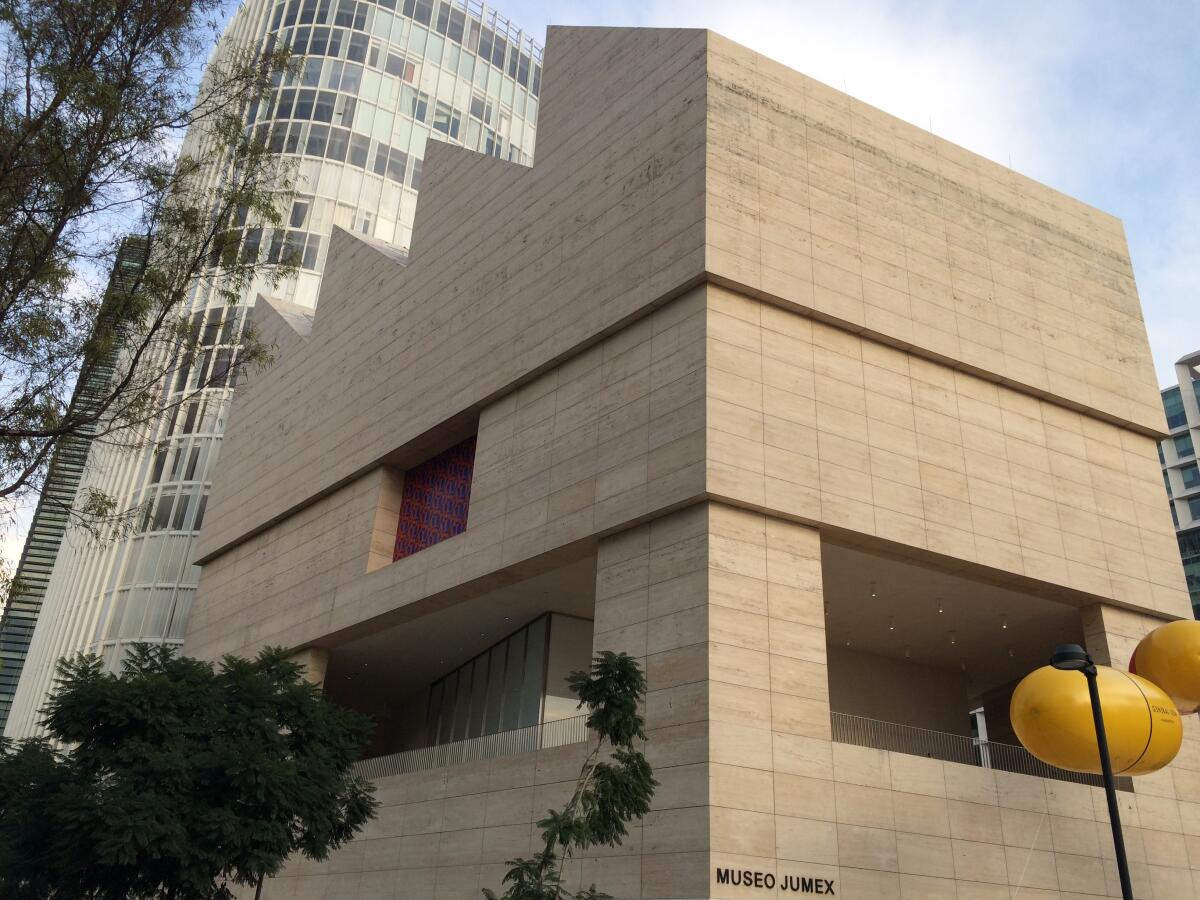
The winner of the Pritzker Prize Coverage Olympics, however, is this epic thread of every Pritzker laureate — if each was a Muppet.
On the stage
Bringing S.E. Hinton’s “The Outsiders” to life as a musical is no easy feat, writes Times theater critic Charles McNulty, noting that the novel’s meditative qualities don’t necessarily translate to the stage. But he is generally impressed with how a new musical, having its world premiere at the La Jolla Playhouse under the direction of Danya Taymor, tackled the story. It is, he writes, “impressively original despite being lumpy in places and incoherent in others. I feared that a commercial Broadway formula would be applied, but I left exhilarated by the artistic risk-taking.”

In and out of the galleries
Photographer Delaney George‘s work has been inspired by her dreams and her empowerment of the Black female figure. The artist, who recently had her first outing at Frieze, is now the subject of a solo show at Gallery 90220. My colleague Steven Vargas reports that George got her start as a model but very quickly decided she needed to be behind the camera.
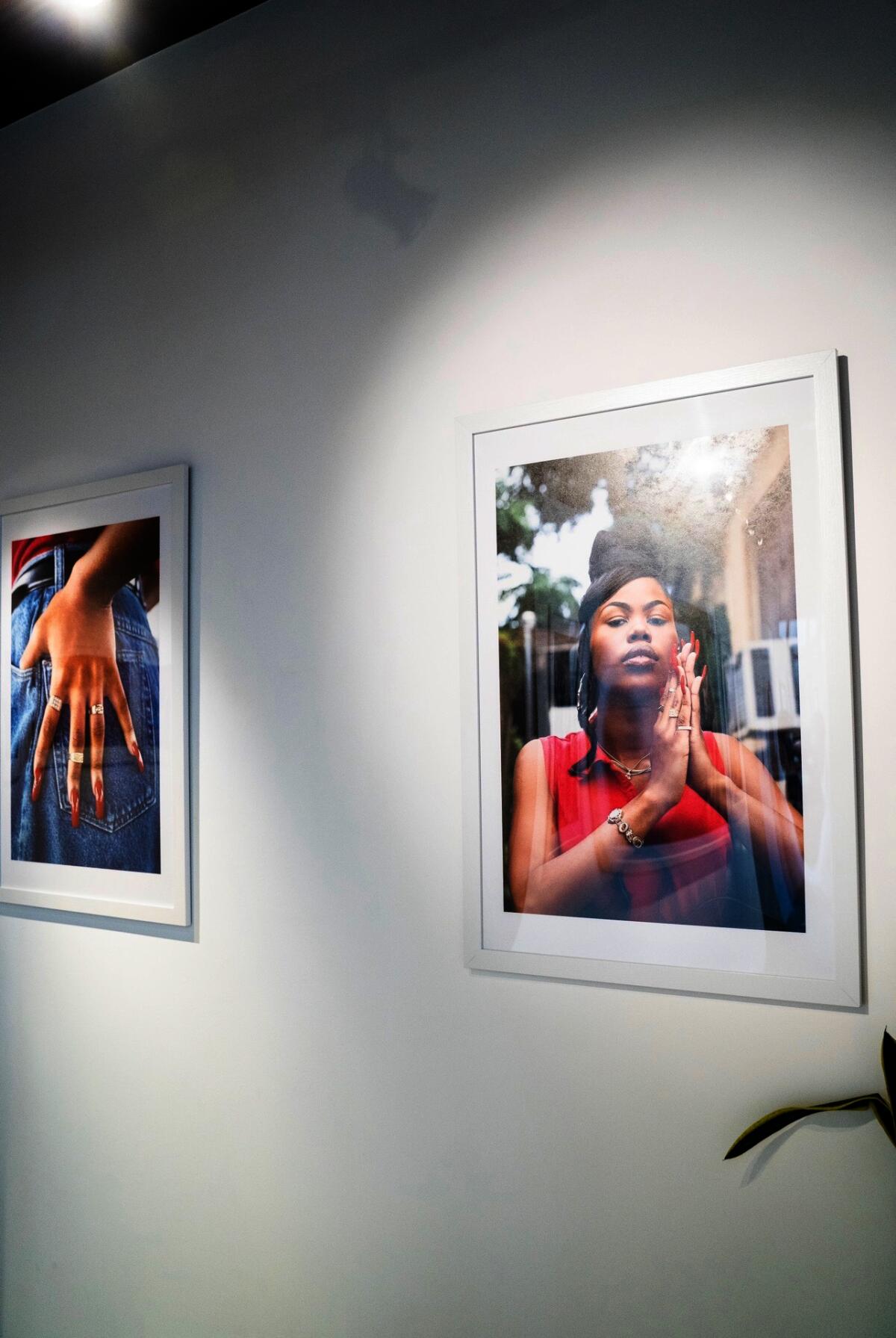
No one I know seems to be clamoring for another reality show about visual artists, yet it seems MTV and the Smithsonian Channel have seen fit to bestow us one. Cue: “The Exhibit: Finding the Next Great Artist.” Contributor Will Fenstermaker isn’t exactly enthralled. “Contestants,” he writes, “are judged for their originality, quality of execution and strength of concept — a set of criteria so universal that it’s essentially valueless.”
The Los Angeles County Museum of Art announced on Tuesday that its $750-million fundraising campaign for its new building by Peter Zumthor is now 98% complete, reports Deborah Vankin.
Hyperallergic’s Matt Stromberg reviews Arts for LA’s 2023 Policy Advocacy Agenda, which outlines challenges facing the city’s cultural sectors. “Despite being the top per capita provider of arts in the nation, Los Angeles ranks 259th in government funding allocation,” Chief Executive Gustavo Herrera said in a statement.
Enjoying this newsletter? Consider subscribing to the Los Angeles Times
Your support helps us deliver the news that matters most. Become a subscriber.
The Natural History Museum will be offering some fresh eats starting on March 17: the museum is about to open Neighborhood Grill, a new restaurant from the team behind Post & Beam.
What I’m reading
On a recent visit to Kinokuniya books in Little Tokyo, I picked up a copy of Taiyo Matsumoto’s “Cats of the Louvre,” a 2019 manga that tells the tale of a crew of felines that have inhabited the recesses of Paris’ famed museum since it was a castle in the 17th century. This strange and moody tale revolves around Snowbébé, a kitten-like feline who, unlike his cat colleagues, is not only in thrall to the art, he frequently escapes into it. The Winged Victory of Samothrace and “Gabrielle d’Estrées and One of Her Sisters” (the most famous nipple tweak in art history) all make appearances, but central to the story is a late 16th century allegorical painting attributed to Henri Lerambert titled “The Funeral Procession of Love,” which shows Cupid being led to his final resting place.
This is no romp. Instead, it’s a meditation on art, death and the nature of time — centered on creatures who at times appear to be adorable kitties and at others, anthropomorphic ghouls. In other words, cats.
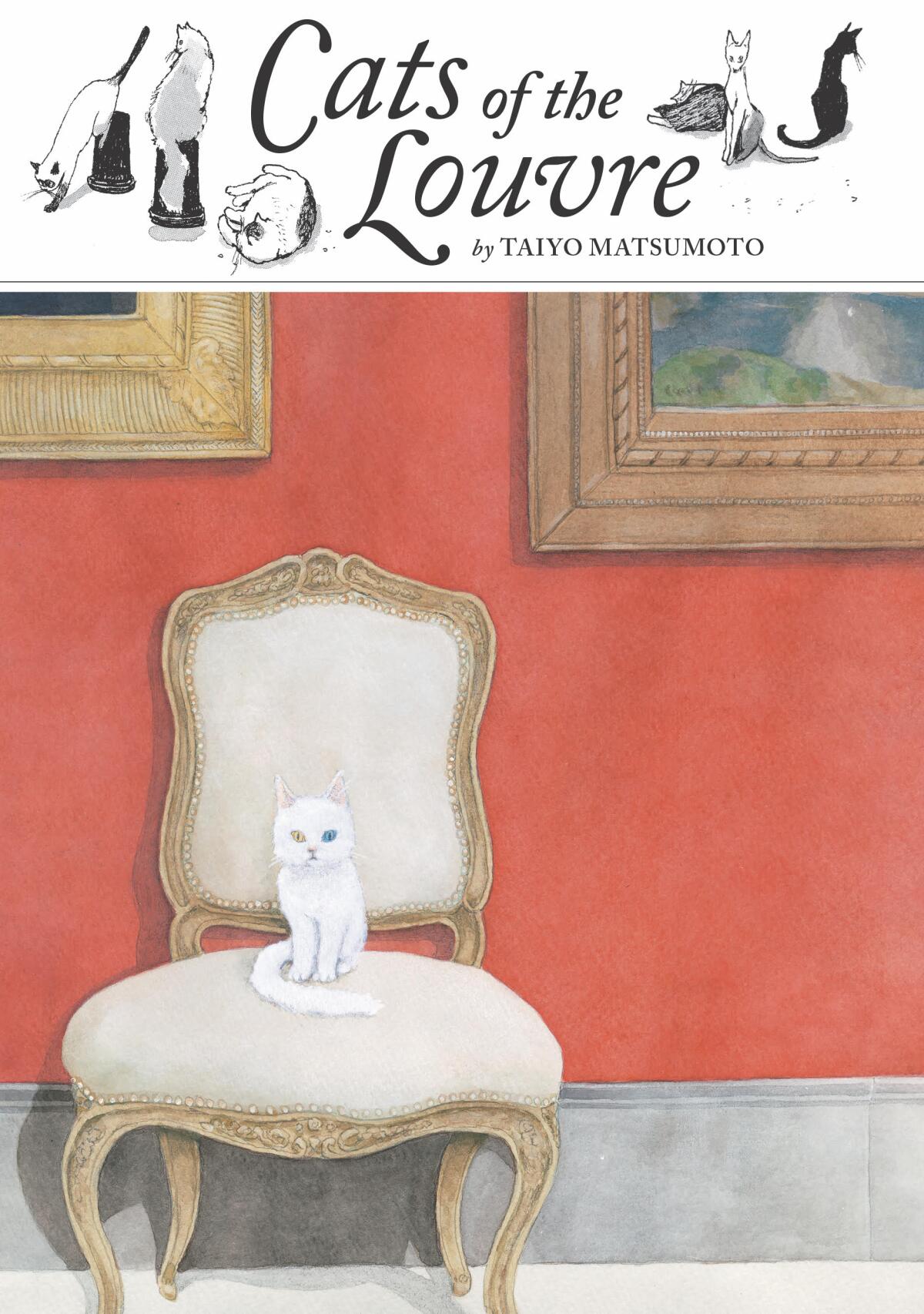
To read more, check out Austin Price‘s extensive review at the Comics Journal. You can find the book here.
Essential happenings
Steven Vargas, steward of the L.A. Goes Out newsletter, rounds up five of the best cultural happenings in our big bad city, which include two performances of Long Beach Opera’s “The Horse” this weekend.
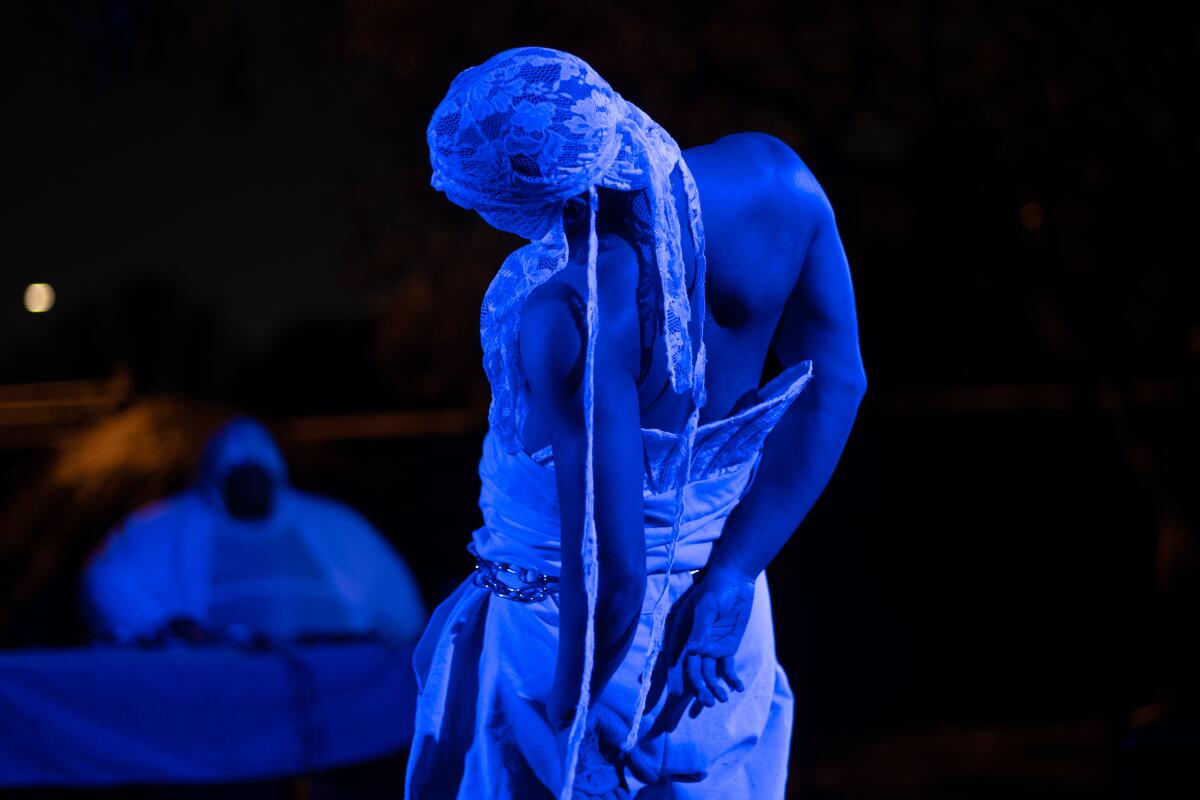
Listings maven Matt Cooper has all the Greater Los Angeles goings-on organized by neighborhood — including two performances by Kristin Chenoweth at the Segerstrom.
Heads up: San Diego’s Rady Shell has just released tickets for its summer season. On the lineup is Rafael Payare leading the San Diego Symphony and the San Diego Master Chorale in a night devoted to Venezuelan composers intriguingly titled “Singing With the Devil,” as well as a night in which the symphony will team up with Joni Mitchell, Carole King and Carly Simon. Tickets are going fast.
Moves
Robert Van Leer has been named the new executive director and CEO of the Wallis in Beverly Hills. Before joining the Wallis, he was a senior vice president at the Kennedy Center in Washington, D.C.
The Ruth Foundation for the Arts recently announced a round of grants that support deep engagement with a place, and among the recipients are Self Help Graphics in Boyle Heights and the Noah Purifoy Foundation in Joshua Tree.
Passages
David Lance Goines, a graphic artist known for designing posters that channeled the ethereal qualities of Art Nouveau and Japanese prints, and who created the signage for Chez Panisse, is dead at 77.
Chaim Topol, the performer better known by the mononym Topol, who was celebrated for his portrayal of the soulful Tevye in “Fiddler on the Roof,” has died at 87.
Architect Eugene Kohn, a co-founder of Kohn Pederson Fox, a firm known for its glassy corporate headquarters — as well as the blazingly wild redo of L.A.’s Petersen Automotive Museum, is dead at 92.
In other news
— The dogs of Chernobyl.
— There’s a really interesting piece by Coco Fusco in the New York Review of Books about a show that was on view at Columbia University of contemporary Cuban artists who have challenged the regime.
— Speaking of censorship: An Idaho college has removed an abortion-themed work from an exhibition citing the No Public Funds for Abortions Act.
— “I was the Black Lives Matter hire, but Black Lives do not matter at institutions.” From a great interview with curator eunice bélidor in Hyperallergic.
— Architecture critic Alexandra Lange has a look at a slew of new books and projects that examine the design of Black domestic interiors.
— Ben Davis has been asking ChatGPT about art theory and has been getting some truly unreal answers. (Bonus points for the hilarious Hal Foster quote.)
— It appears that cars are now coming in hues previously reserved for Gap khakis.
— Very cool: Teena Apeles rounds up L.A.’s 32 most spectacular ceilings.
— The New York Times has an interesting piece about the acoustics of Notre Dame in the wake of the fire. Definitely put on the headphones for this one.
— If you haven’t, absolutely positively read Michael Schulman‘s story in the New Yorker about Robert Opel, the guy who streaked the Oscars in 1974. With tangents into San Francisco’s leather scene and a gallery called Fey-Way, where Robert Mapplethorpe once had an exhibition.
And last but not least ...
For those who are into the Oscars and are also very hungry, here is L.A. Taco‘s absolutely vital roundup of the 15 best appearances by a taco or a tortilla in film and on TV.
The biggest entertainment stories
Get our big stories about Hollywood, film, television, music, arts, culture and more right in your inbox as soon as they publish.
You may occasionally receive promotional content from the Los Angeles Times.




